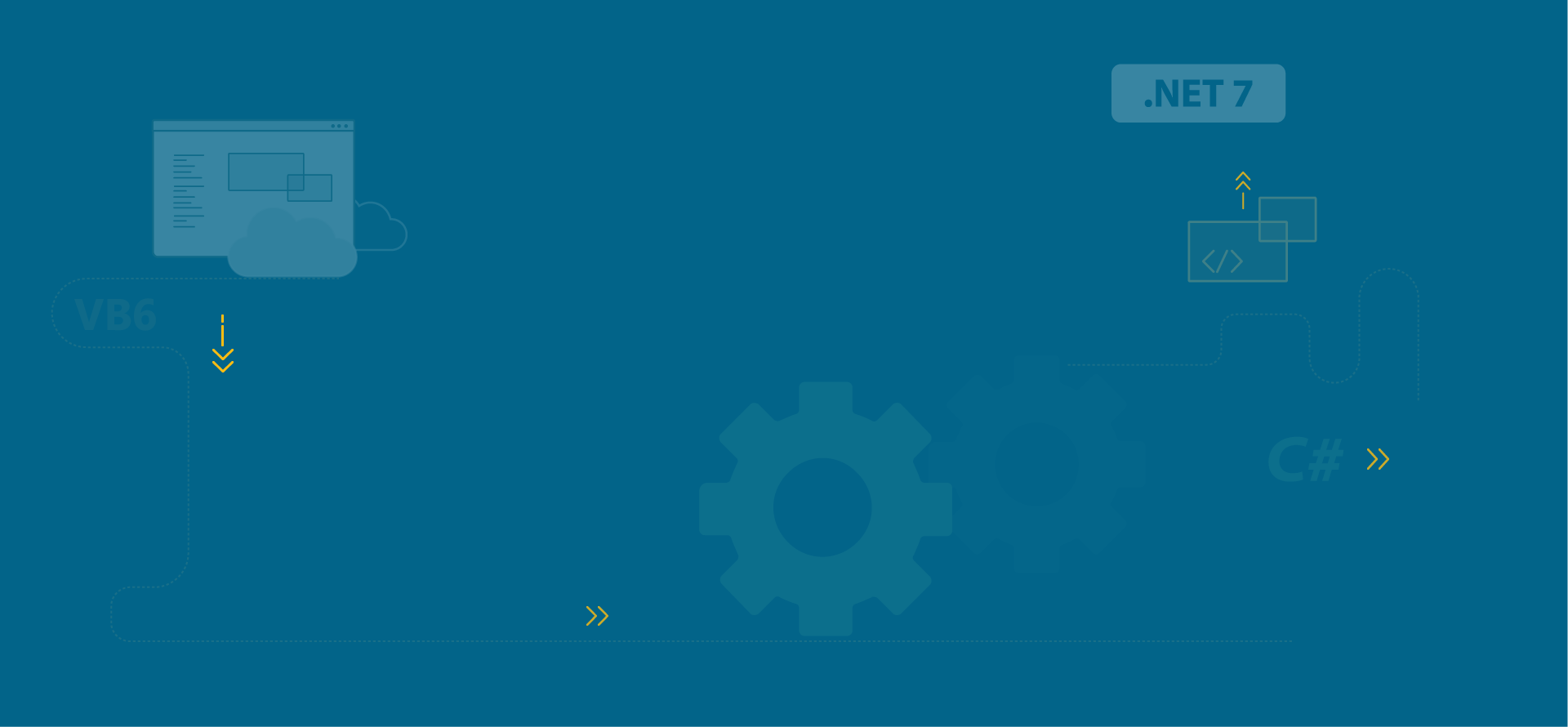Transformation Services
Not Sure Where to Start?
Transformation Services
Not Sure Where to Start?
Transformation Services
Not Sure Where to Start?

ASP.NET Web Forms Migration Tools help modernize legacy web applications by converting them to contemporary frameworks like ASP.NET Core with Angular or React. These tools ensure improved performance, scalability, and maintainability while preserving essential business logic.
.png?width=482&height=493&name=DotNet%208%20VB6%20(1).png)
At 21, ASP.NET Web Forms is old enough to drink. Released in 2002 with .NET 1.0, it was a quick and (relatively) easy way to get responsive server applications on the web. But now it's legacy--and antique--technology.
GAP can modernize those web forms applications to a cloud-native architecture using Angular, Blazor, or React.
Whichever architecture you choose, WebMAP slashes the time and cost compared to rewriting from scratch.
Web apps can be slow due to control-heavy screens, constant database lookups, and network chattiness. WebMAP single-page application (SPA) apps run light and fast on the server, making the client experience rich, responsive, and familiar.
ASP.NET Web forms apps are slow because every page has to be re-loaded and re-rendered after a change. Old Web forms apps, like cross-site scripting (XSS) and SQL injection attacks, can pose serious security risks to your organization. Modern languages and platforms have more integrated app security protections.
One of the primary challenges is translating the tightly coupled architecture of Web Forms into a more modular, component-based structure like ASP.NET Core with Angular or React. To overcome this, start by decoupling the business logic from the UI, ensuring better maintainability and scalability.
Another common challenge is managing the stateful nature of Web Forms since modern frameworks are stateless by default. This can be addressed by leveraging modern state management techniques like session storage, local storage, or dedicated libraries.
Recreating server-side controls and postback mechanisms is also challenging; replacing them with client-side components and asynchronous calls (using AJAX or APIs) ensures smoother user interactions.
Preserving existing business logic without rewriting everything from scratch can be achieved by reusing backend code where possible, especially when transitioning to ASP.NET Core.
Additionally, data migration and integration with existing systems can pose difficulties—careful planning and the use of APIs can ensure seamless connectivity.
Lastly, user adoption and training should not be overlooked; involving users early in the process and providing training can ease the transition.
Migrating from ASP.NET Web Forms to modern web frameworks involves a structured process designed to ensure a smooth transition while preserving core functionality and improving performance. Here’s a high-level overview of the essential steps in the migration journey.
Step 1: Assessment and Planning
We start by analyzing your existing Web Forms application to understand its architecture, business logic, and dependencies, allowing us to develop a tailored migration strategy.
Step 2: Code Decoupling and Conversion
Next, we separate the business logic from the UI and convert it to a modern backend framework like ASP.NET Core while redesigning the frontend with Angular, React, or HTML5 for a responsive and user-friendly experience.
Step 3: Data Migration and System Integration
We migrate the underlying data to modern databases (e.g., SQL Server) and ensure seamless integration with existing systems through modern APIs and updated connectivity solutions.
Step 4: Testing, Deployment, and User Training
Finally, we conduct thorough testing to ensure the application’s stability and functionality, deploy the new web solution, and provide training to facilitate smooth user adoption.
Cloud application migration tools transform desktop apps.
C# migration tools to take your desktop app to the web with Blazor.
Unlock deep insights into your legacy code with ByteInsight.

Mobilize.Net offers valuable technology and services that help customers easily modernize their legacy applications for use on today’s modern platforms and devices program at Microsoft.
- Shawn Nandi, Sr Director, Cloud App Development, Data & AI Marketing
We were able to migrate our VB6 code to .NET using the VBUC license we acquired through MSDN. After the migration only a few things needed manual modification. So your software did a great job and saved us a lot of time
- JMarco Botermans, Owner - Fluke
“Mobilize.Net has a strong track record of building products that successfully automate challenging source code migrations, and this [product] will empower our customers to get up and running on Snowflake sooner.”
- Chris Degnan, CRO at Snowflake
Mobilize.Net seemed the only one that sorted out the details, not only the basic issues of a migration engagement. Its product, the Visual Basic Upgrade Companion, included unique, powerful features, many of which turned out to be very valuable for this specific project, like ADO to ADO.NET conversion and error handling transformation
- Rod Coles – President, Bold Technologies, Ltd
We ran a proof of concept comparing the Visual Basic Upgrade Companion (VBUC) with other VB6 migration tools and we definitely preferred the way VBUC handled the conversion.
- James Lewis Stevenson II – Software Design Engineer, GT Software





8834 N Capital of Texas Hwy, Ste 302
Austin, TX 78759
Call us: +1.512.243.5754
info@wearegap.com